Natural Pet Products: More Than a Trend
Colleen Murphy //June 21, 2017//
When Earth Animal first started out, its natural products were “a hard sell,” according to company founder Susan Goldstein.
That was 1979. Fast forward 38 years, and natural products are not only well-received by retailers and consumers—they are demanded.
Providing pets with a natural lifestyle—from their food, supplements and toys to their grooming products and cat litter—can help with a pet’s longevity and quality of life, says Goldstein, whose company manufactures a number of natural products, including Wisdom dog food and a flea and tick program.
And people within the pet industry have definitely picked up on this over time, with an especially large focus on natural products these last couple of years. This trend can be clearly seen when taking a look at the number of “natural” exhibitors at both Global Pet Expo and SuperZoo since 2014.
According to the World Pet Association, organizers of SuperZoo, its Nature’s Pathway neighborhood took up a square footage of 57,400 and had 148 exhibiting companies at the 2014 trade show. At last year’s show, there was 120,400 square feet set aside for the Nature’s Pathway section, with 238 exhibiting companies, meaning the natural section comprised nearly 20 percent of the entire show’s exhibitors. In just two years, the area dedicated to natural products at SuperZoo more than doubled in size and added 90 more companies to the section.
Global Pet Expo saw an increase of 65 vendors in its natural section between 2014 and 2017, according to numbers provided by the show’s public relations agency, The Impetus Agency. In 2014, with 85 booths, the natural section made up about 8 percent of the show’s total exhibitors.
This year, with 150 exhibitors, the natural section comprised about 13 percent of the show’s total exhibitors. This increase in supply and demand for natural pet products can be attributed to a few factors, including a more educated consumer and a more humanized pet.
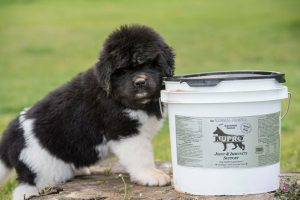
“I think a lot of people are now waking up to the fact that there’s too many chemicals in our own food. And obviously, animals have become so much more part of our family, why would you want to be feeding them anything that’s not superior to what we’re eating?” said Janis Gianforte, president of NUPRO, maker of natural supplements for dogs, cats and ferrets. “Why should they be eating ‘animal-grade ingredients’ when you just don’t have to do that anymore? Times have changed. They’re so much a part of our family now, they’re like our children. Not that they ever weren’t before, but I think now more so than ever, they’re not in the backyard anymore; these dogs sleep in the bed with us now. We want to feed them as well as we feed ourselves.”
But again, the term “natural” is not just limited to food. More and more products in different product segments are marketed as “natural.” Yet, what exactly is “natural?” What does that term mean?
Defining ‘Natural’
Getting to the bottom of which products really are “natural” can be tricky—and that’s because there really is no one true definition that all companies must follow. Because there is no definition or regulation by the U.S. Food and Drug Administration (FDA) of what “natural” means, there is no fede
ral guideline that pet companies must abide by when marketing their products as “natural.”
However, the Association of American Feed Control Officials (AAFCO) has made efforts to make the meaning of “natural” clearer to retailers and consumers. The group does not regulate, test, approve or certify pet food, but it helps to establish “model language that states and other governing bodies may adopt into law.” In fact, according to the AAFCO, “many states base their own feed laws, regulations and policies on the AAFCO Model Bill and Model Regulations.” The AAFCO aims to make the pet food buying experience easier for pet owners by providing a website as a “practical, real-world, plain-English tool for answering questions about pet food.”
“As consumers compare the infinite number of pet food products available, digest the promotional art and marketing language, evaluate the many ingredients and attempt to make se
nse of it all, is it any wonder that choosing the right pet food can seem complicated and confusing?” the AAFCO website asks.
As part of its effort to promote “uniformity in laws, regulations and enforcement policies,” the AAFCO came up with its definition of natural: “a feed or feed ingredient derived solely from plant, animal or mined sources, either in its unprocessed state or having been subject to physical processing, heat processing, rendering, purification, extraction, hydrolysis, enzymolysis or fermentation, but not having been produced by or subject to a chemically synthetic process and not containing any additives or processing aids that are chemically synthetic except in amounts as might occur in good manufacturing practices.”
Because a majority of states have adopted the AAFCO Model Bill and Model Regulations, the AAFCO states that most “food labelers/guarantors must comply with this definition to display the term.” For states that haven’t adopted the AAFCO guidelines, their labeling of pet food must comply with the “federal requirement that labeling must not be false or misleading,” the AAFCO reports.
According to the AAFCO, because “most pet food ingredients are derived from ‘plant, animal or mined sources,’” the term “natural” includes more ingredients than it excludes. However, ingredients that do not fit the AAFCO’s definition of “natural” are “ingredients that are chemically synthesized, such as vitamin ingredients, mineral ingredients, preservatives and special-purpose food additives.”
As the smart feeding company Petnet points out in its online blog, even if a product has just one ingredient that is natural, the term “natural” can still be put on packaging, so long as that term is referring to only that ingredient and not the product as a whole.
Regulation vs. Education
With there being no regulation by the government of what “natural” is, some believe there is room for deception and that companies will put the word “natural” on their packaging because it is the buzz word for which consumers are looking. To avoid that, Goldstein believes that there should be regulation of natural products, pointing out that there is already tough regulation on the labels of “organic” and “sustainable.”
“I think we should have the same demands on natural [as we do for organic and sustainable products], I absolutely do,” Goldstein said. “It’s real easy to be natural these days. It takes a little bit of effort, but I think to have that type of structure, if you will, would be a good thing for the animals.”
However, not everyone thinks regulation for natural is necessary, saying that there are so many regulations on the pet industry as it is and that people already know what natura l means.
l means.
“It’s not a new thing,” Gianforte said. “It’s just people trying to redefine something that’s already got a definition. I think people in their minds already know what it is.
“I mean, yeah, [regulating for natural] may stop the bad actors and the people who are putting junk out there from saying the word ‘natural,’ but people today can weed through what’s junk and what’s real,” Gianforte said. “I don’t think they need to do more regulation to be honest with you, because again, what’s natural, who’s going to define it? Do I have to add something to my product to make it more natural? Do I have to take something out? That’s really a loaded gun. I think natural should just encompass that you’re not doing additives, preservatives or something chemical, and if they left it at that, then th
at would be my definition of natural.”
Susan Weiss, founder and CEO of Ark Naturals, which manufactures dog, cat and senior-specific products made with natural ingredients, also has that “if it ain’t broke, don’t fix it” outlook on the regulation of natural.
“The word ‘natural’ [is] all over every marketplace—human products, pet products, etc,” Weiss said in an email. “In the 21 years I’ve been in business, the number of consumers who challenge any of us on ‘what is natural’ is really, really small.”
Instead of regulation, Weiss encourages consumer and retailer education.
“The biggest problem is that all of us are bombarded with messages all day long,” Weiss said. “We work, organize homes, businesses, families, social life, health, etc., from morning to night. The real question is how to educate as to what is natural and how to do that in 30 seconds or less with buzz words that stick.”
Gianforte agrees that educating oneself on natural products and their ingredients is the way to ensure retailers and consumers are buying products that are truly natural for their stores and pets, respectively.
“They’re going to have to be label readers,” Gianforte said. “They’re going to have to understand ingredients… Looking at the quality of the presentation of the product, what the person is able to say on it or about it. It’s just going to be familiar with natural ingredients. If you see something that’s going to be on a bag of Twinkies, you’re going to want to stay away from that because that’s definitely not natural.”
And if one is unsure if an ingredient is natural, Gianforte points out that virtually everyone has access to look that up right in the palm of their hand: a smartphone.
“Just look it up in the store when there’s an ingredient you’re not familiar with,” she said. “Find out what it is—don’t just take it verbatim because the product says it’s natural that it is. Look it up.”
A Step Above
Jason Riccardi, former president of Pura Naturals Pet, maker of natural grooming products, predicts that sooner or later, the FDA will
start to regulate the word “natural” in the pet industry because the step is already being taken on the human side. Because there is no regulation and the term is being so widely used simply to catch people’s attenti
on, Riccardi says that, unfortunately, the word has lost some of the weight it once carried. And until there is regulation, Riccardi believes it is up to the manufacturers of natural products to make “natural” substantive again.
“I think the burden, the onus of this, falls on us, the manufacturers and the creators of these amazing products that truly are natural, safe, healthy and effective,” he said. “That onus falls on us to be able to take the next step and go beyond the word natural.”
Pura Naturals took the initiative to go beyond the word “natural” and had a line of conditioner that is certified organic by the USDA and after the company talked with the USDA, it is believed to be the first organic conditioner available—both in the pet and human sphere.
“That’s just not something you can say—that’s natural certification that you do,” Riccardi said. “When someone has that certification and is able to exhibit that seal on their product, customers know that this has met a very specific set of criteria for manufacturing. And you don’t have to guess, is this a natural product, is it not.”
Earning certification from the National Animal Supplement Council (NASC) is another way companies can notify their customers that they truly are natural.
Wapiti Labs, maker of elk velvet antler supplements, says that elk has been used in traditional Chinese medicine for thousands of years, an
d since it’s been used for so long, it’s not really a recipe that Wapiti Labs wants to change. To ensure retailers and customers the company doesn’t “put anything in there that doesn’t have a reason,” the company decided to go through the NASC certification process.
“We are natural, and we can say that because we are certified by the NASC,” said Kaurie Jeske, an account executive for Wapiti Labs. “An d they watch us and they make sure we are as honest as we can possibly ever be. They hold us to a really particular set of standards, and that’s not something that we had to be a part of, that’s something we chose to be a part of. That’s something that sets us apart and what allows us to say we’re natural. All of our ingredients are natural ingredients. It goes through an inspection process three or four times… A lot of companies do put natural on their box and they’re not monitored, they’re not called on it, they don’t have to be natural. But the point of the [NASC] stamp [is that you’re] more trustworthy. If you’re going to say ‘natural product,’ they’re going to make sure you’re natural. They won’t let you get away with anything.”
d they watch us and they make sure we are as honest as we can possibly ever be. They hold us to a really particular set of standards, and that’s not something that we had to be a part of, that’s something we chose to be a part of. That’s something that sets us apart and what allows us to say we’re natural. All of our ingredients are natural ingredients. It goes through an inspection process three or four times… A lot of companies do put natural on their box and they’re not monitored, they’re not called on it, they don’t have to be natural. But the point of the [NASC] stamp [is that you’re] more trustworthy. If you’re going to say ‘natural product,’ they’re going to make sure you’re natural. They won’t let you get away with anything.”
NUPRO is also a NASC-certified company, and Gianforte believes that, paired with the trust her products have earned over the past 28 years, is why her natural company is still succeeding.
“That takes a lot, being audited. That’s actually a person coming to your physical location and looking at everything you do for a couple days,” Gianforte said of the NASC certification process. “They’re not doing that with people on the internet, so there’s a lot of benefits to being around for a long time and having a product that’s stood the test of time.”
Talking with a distributor can also help a retailer pinpoint which products marketed as natural he or she wants to stock, according to Pet Food Experts Director of Marketing Eileen Wilmarth.
“We look at ingredients, we look at sourcing. We really dive in; we’re not taken by what something is called. Products can be called natural—I think that word is really overused—so we’re very careful when we’re looking for something that is truly natural,” Wilmarth said about Pet Food Experts, Pet Age’s 2016 Distributor of the Year. “We’ll look at ingredients, sourcing, where’s it’s made, who makes it, what the processing is; we’re very careful about that. If we’re going to offer something that’s in that natural category, we just want to make sure that it truly is [natural].”
Natural Options
Over its almost 30 years of business, Pet Food Experts has seen how the pet industry has changed over time. According to Wilmarth, natural is what the distributor is seeing right now, and more specifically, the company is seeing an increase of interest in natural across all categories.
Dog Rocks is a natural way to stop pet urine burns on owners’ lawns, says Carina Evans, CEO of Podium Pet Products, parent company of Dog Rocks.
“Dog Rocks are mined straight from the earth,” Evans said in an email. “They are not manufactured or mixed or chemical, they are rocks from a particular part of Australia, straight from Mother Nature herself.”
The rocks are placed into the pet’s drinking bowl where they filter out the water’s impurities, eliminating the ability for them to be passed through the pet’s urine and onto the grass, and thus burning it.
According to the Dog Rocks website, “the only intervention it has had is that it runs through a grader in order to size the rocks to prevent choking.” Dog Rocks is even packaged in all-natural bags and boxes.
Podium Pet Products also makes Pet Remedy, a natural de-stress and calming spray.
“We use natural herbal essences to produce gentle but effective oil-based diffusers and refills and water-based sprays that can be applied direct to the dog, its owner, its bedding or human skin,” Evans explained. “Non-natural calming products use pheromones which chemically change the messages that get sent to the brain; I don’t want my pets to be subject to that, thank you very much… There is nothing more powerful than nature, and our herbal essences work extremely well with pets as they are so close to nature as well.”
Laura Lang, president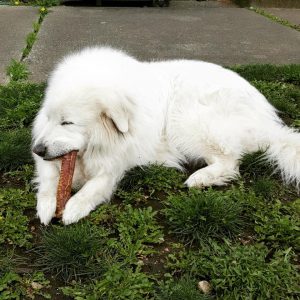 of Jones Naturals, LLC, says all of her company’s dog bones and chews are naturally processed—no artificial ingre
of Jones Naturals, LLC, says all of her company’s dog bones and chews are naturally processed—no artificial ingre
dients are added to the oven-baked products.
“The more natural and simple the product, the better it is for the dog and the dog’s overall health. Artificial preservatives and ingredients can cause many health issues,” Lang said in an email. “Dog owners are very conscious of what they feed their dogs. Dogs are a member of the family and the dog’s health is equally important to the family’s health.”
Yeti Dog Chew is another company that makes its dog chews out of natural ingredients. Himalayan yak and cow milk are used to make the chews, which range in size from small (for dogs up to 20 pounds) to extra-large (for dogs up to 90 pounds), according to the company’s website. Yeti Dog Chew’s treats are made with Himalayan yak cheese.
Of course, there is also the natural food. Nature’s Logic got its start in 2005 because creator Scott Freeman wanted to make a pet food that focused “on the benefits of whole food nutrition without using added synthetic supplements widely used in the pet food industry to meet the nutritional analytical levels of dog and cat food,” according to the company’s website. There is natural food for both cats and dogs available, as well as natural cat litter.
Parrots can also get a taste of the natural life with Parrot Pellets from Lafeber. According to the company’s website, “each pellet is a high-quality blend of natural ingredients like ground non-GMO corn and soybean meal. Our grains are literally grown outside Lafeber Company’s front door.” The pellets are also naturally flavored and preserved.
And don’t forget about the small animals. Kaytee offers its Clean & Cozy Natural Bedding as well as All Natural Orchard Blends Digestive Health hay. The natural blend of the latter is composed of timothy, Bermuda and orchard hay, and mint leaves, providing a natural source of fiber, the company’s website says.
Safe Play
Mary Wolff saw a need for natural toys after realizing her own concern for what her pets were putting in their mouths when playing with their toys.
“In a time where everything is so highly regulated, we all make the assumptions that ‘Well, it’s on the market for sale, it must be safe,’ and you hope that would be the case, but with pet toys it’s definitely not,” Wolff said.
As she points out, there is no regulatory requirements specific to pet toy safety, and so she wanted to create a product that she knew would be safe for her dogs, and other dogs and cats, to play with because they were made with natural materials. And so, Wolff founded Honest Pet Products.
The company uses a natural hemp fabric for its toys, and the plant that fabric comes from does not need any pesticides or fertilizer in order to grow, according to Wolff.
“The color [of the toy] comes in a sort of natural toque looking color, which is the natural fiber that comes from the stalk of the plant that is then turned into our fabric,” she said. “The process itself of converting the fiber into the fabrics we use doesn’t use any bleaching agents or dyes or any other chemicals to produce the fabrics. They are a very natural fiber.”
The second natural material that Honest Pet Products toys are made out of is organic wool. All but one of the company’s dog toys are filled with the wool, which is sourced from humanely raised sheep in northern California (the eighth dog toy in the line is made only of the 100 percent hemp webbing and doesn’t have stuffing, and the cat toys are filled with catnip).
The toys, which are available in different sizes for different-sized pets, are also “screen printed with lead-free, waterbased, non-toxic screen print ink,” Wolff explained. “Nothing harmful [or] toxic, no chemicals through and through our toys—they’re just hemp and wool. It’s probably the most natural pet toy line on the market.” And because of the natural heavyweight hemp material that is used, the toys are durable enough to stand up to even the most “ambitious” chewers, Wolff says. In fact, her dogs are still playing with the first Honest Pet Products toy she gave them seven years ago.
And because Wolff is so confident in the integrity of her toys, she has a 100 percent satisfaction guarantee on all of them, though she says in the seven years she has been running her business, she has only needed to refund under 20 toys. Honest Pet Products also stands behind the retailers th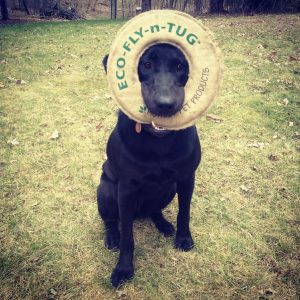 at sell its product. If something does not sell, Wolff will buy the items back.
at sell its product. If something does not sell, Wolff will buy the items back.
“I never want a store owner to be stuck; there should be no risk in them bringing our products in,” she said. “If something doesn’t sell in a
reasonable amount of time, we’ll gladly refund their money.”
Wolff will also swap out items if it turns out one size or type is selling better for a retailer’s customer base than another. If the company’s wholesale customers get a return from one of their customers, Wolff e
ncourages the retailers to have the consumer call Honest Pet Products and the company refunds the whole price instead of having the retailer do it, so the store owner doesn’t even lose the sale. With these policies, it is Wolff’s goal to figure out why a customer is dissatisfied with a toy and how her company can improve upon the quality and durability of the product.
According to Wolff, retailers have had a positive response to her natural toys and are happy to have found an alternative to offer their customers, who have become more conscientious in the products they give their pets.
Going Natural
Wilmarth says that, of the over 140 brands Pet Food Experts distributes to independent retailers, at least 25 percent market themselves as natural. The products retailers buy are the products that their customers are looking for, and based off of this notion, Wilmarth sees a difference in demand for natural depending on where Pet Food Experts’ retail partners are located.
“As an independent retailer, they know what their customers are coming in for… the consumer is more aware of natural products now… and certainly some locations are more focused on natural than others,” she said. “For instance, our Pacific Northwest customers are extremely focused on all natural and sustainable resources and things like that whereas in the Northeast, the New York metro area, it’s more price-driven.”
Aloha Natural Pet Supply sees this care for natural that the Northwest has among its customers, too. The company distributes a full line of
products to Oregon, Washington, Alaska and parts of Idaho and Hawaii, and the food it carries is all only natural. Because there is already such an importance placed on natural in the area Aloha Natural Pet Supply services, there is not much convincing that needs to be done—the retailers seek out the distributor for a partnership.
“Here in the Northwest, very savvy
customers,” said Aloha Natural Pet Supply owner Mary Keliikoa, who founded the company with her husband, Robb. “They do their research and they feed their dogs and cats really well and they know what they’re looking for, so stores have answered that call by making sure that they know what they’re stocking on their shelves as well.”
And in the 16 years Aloha Natural Pet Supply has been around, it continues to expand, proving how in-demand natural is. According to Kel
iikoa, for the past six or seven years, the business has grown 30 to 40 percent each year. As of now, the company distributes 65 lines and works with 600 customers, all the while following its motto of, “If we won’t take it home to our own pets, then we won’t sell it to you.”
“We have to believe in everything we sell,” Keliikoa said.
Stocking natural can help draw consumers, as well. As Weiss puts it, “Could a retailer bring potential customers in a store if their outside signage advertised ‘We sell chemical pet products?’”
And if customers are thinking about making the switch to a natural product and question whether their pets will like the change, Wapiti Labs encourages owners to simply try it.
“We have trial packs, and that’s how we get people trusting our product,” Jeske said. “Our trial packs usually last 10 to 12 days… The only way you’re going to know if a natural product 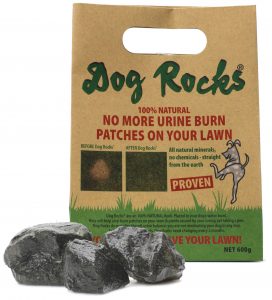
works for your pet is to try it.”
Gianforte says that NUPRO, which is endorsed as the official supplement for the LAPD K9s, is not like a Frisbee—you can’t see what the product is going to do. Similar to Wapiti Labs, NUPRO offers free samples.
Gianforte will supply an interested retailer with the supplement so they can test the product on their own pets and see the results for themselves. Gianforte also stresses the importance of open communication when it comes to answering customers’ questions about her natural product. To ensure she is interactive with her customers, Gianforte has the company phone number printed on each container’s label and encourages retailers to have customers call NUPRO right from inside the store if they have a question about the product. This willingness to have a conversation may also be a way to figure out which companies are the best of the best when it comes to all the natural products out there.
“I think a company being open and transparent with their customers—because of today’s age people want to know more information—
I think that’s a good point of a good quality company, when they’re willing to answer the phone and talk to you,” Gianforte said. “We run our company where people have questions, people love their animals, they want to do the best by their animals, they want to be able to talk to somebody so they can have self-assurance that what they’re giving this animal is 100 percent correct and they want to give something that’s going to benefit the animal, so we as a company, we do that.”
Gianforte also points out that an independent retailer might be the best place for an owner to get more information on natural products because of their want to attract a niche audience like the natural sector.
“Your local pet store, your small mom and pop pet shop is your best resource for finding a lot of this out because these people are educated,” she said. “They have animals, they’re running that small pet store because they’re proactive and they want to help you, and they’re the ones who are going to go to the trade shows and listen to what the manufacturers have to say and look at the efficacy of these products.”
The Natural Pet Center in Gardiner, New York, is one example of such a store. Its owner, Michele Zigrossi, studied human food and nutrition in college and turned her background into a pet food passion. Her store stocks only natural f
ood—no artificial flavoring, no artificial colors, no dyes. Even the hummingbird food she stocks must adhere to her high standards of natural.
“I handpick every single thing that goes into this store. Period. So I know it’s going to meet my qualifications,” Zigrossi said. “[Customers]
can walk in the door and be comfortable… You don’t have to even look at the panels.”
In fact, The Natural Pet Center’s website states, “Come meet Michele and her staff. They’ve done the research and ingredient label reading for you!”
Working in the pet industry for about 15 years and running The Natural Pet Center for seven years, Zigrossi explains the level of knowledge customers have for natural is one of the biggest changes within the natural market over the years. For example, instead of entering the store to learn more about a natural diet like they once did, many customers now go into the store with a list of ingredients their pets can’t have—though there is still work that needs to be done when it comes to educating people about natural food, they are more aware than they have ever been, according to Zigrossi.
“I hope that we can continue to see the trend in the industry of the customers becoming more and more educated,” she said. “That’s one of the things I would like to see in the future, and it’s definitely happening and it’s exciting to me. It’s a good thing; people are talking, people are paying attention, people are starting to look at the ingredient panel on their dog food as well as they should.”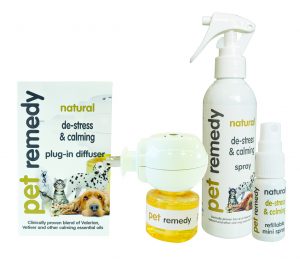
The food itself is another big change Zigrossi has seen. The raw and freezedried market is huge compared to what it was when she first started out a decade and a half ago, and she expects those to increase in popularity. The introduction of “unique proteins,” such as kangaroo, is another big change.
And while natural food can be pricier—according to Zigrossi, some bags cost over $100—she stresses there are definitely natural food options available that are comparable to non-natural food that “will make your dog look good, feel good and be happier.”
Here to Stay
When Weiss founded Ark Naturals in 1996, she says “the universe was a different place.” In fact, back then, a retailer once went up to her at a trade show and said that “no one wanted natural.”
Times have changed.
According to Riccardi, as more people become aware of what they are putting on and in their body and the surrounding environment, we can expect the demand for natural to continue to grow, and the American Pet Products Association’s 2017-2018 National Pet Owners Survey reflects that.
For example, 22 percent of respondents said they purchased natural dog food in 2016. In 2010, that percentage was at 13. Meanwhile, 18 percent of cat owners purchased natural cat food in 2016, up from the percent recorded in 2010.
Additionally, the number of dog owners who purchased an all-natural, chemical-free flea and tick product is also up—almost 10 million dogs were treated with one in 2016.
As the numbers show, the sector will probably continue to grow, and regardless of whether or not natural begins to be regulated, these companies, like Ark Naturals, plan to stay true to their goals of providing natural products to better the lives of pets.
“So, why natural? We as consumers hope that natural is healthier [and] will help us to live longer and more productive lives. We hope that is true for our fourlegged guys as well,” Weiss said. “It’s our mission (and long before it became trendy).”
Aloha Natural Pet Supply didn’t start out to be trendy, either. The couple became involved in natural pet food after their dog became ill and the natural lifestyle they started providing for the dog helped it get better. They discovered how beneficial natural can be first-hand, and Keliikoa thinks more people will realize this.
“I think it’s the way people are going to keep going,” Keliikoa said. “I don’t just think this is trendy… I think that’s the way it’s going to be from now on.”



















